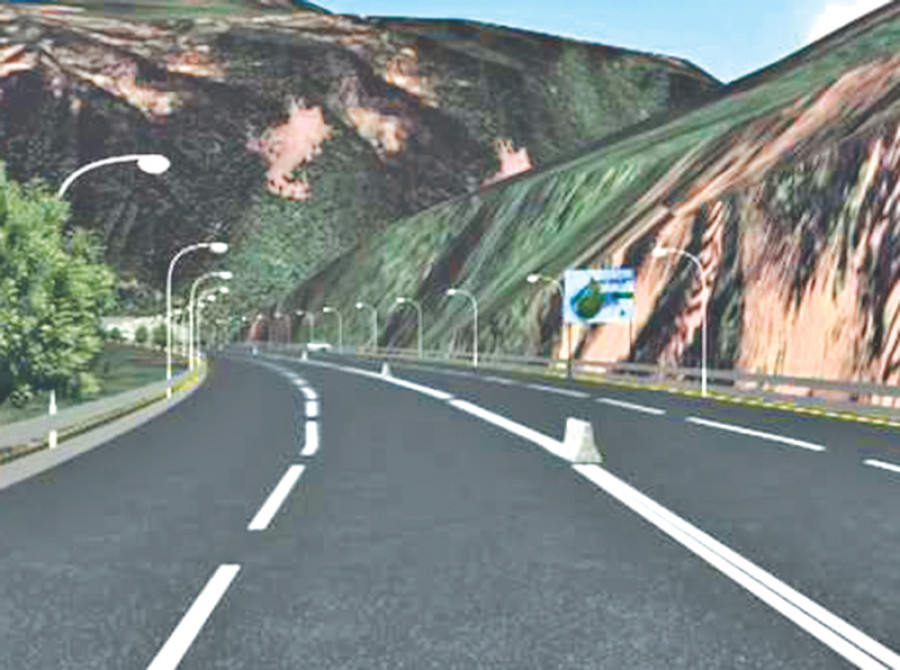Miscellaneous
Donors showing interest to finance 76-km expressway
Donors have started showing interest in financing the Kathmandu-Tarai Fast Track Road Project after the government decided to build it on its own by scrapping the previous agreement with an Indian firm.
Donors have started showing interest in financing the Kathmandu-Tarai Fast Track Road Project after the government decided to build it on its own by scrapping the previous agreement with an Indian firm.
The World Bank, one of the agencies to have shown early interest in developing the much-hyped prioritized project under build, operate and transfer (BOT) model, has renewed that with an offer to finance the 76-km expressway, according to government officials. The officials had held talks with the World Bank on securing the financing for the project during WB Country Director for Nepal Qimiao Fana’s visit here in September.
Deputy Director General at the Department of Roads Sanjaya Shrestha said the
WB had expressed interest to finance over $1 billion for the project. “So far, we have held talks on the project only with the WB,” said Shrestha, who looks after the Foreign Cooperation Branch at the department. “Other donors might also be interested to fund the project as it is a
project whose completion would enhance the image of any donor.”
NPC Vice-chairman Min Bahadur Shrestha, who is also the coordinator of the government taskforce to recommend ways to develop the Fast Track Project, said that the donors have showed interest to finance the project.
“But we are yet to hold a discussion, specifically on the matter,” said the NPC chief, adding that the taskforce would hold meeting with them after reaching on conclusion about detailed project report (DPR) of the project.
The taskforce has been mandated to recommend whether to adopt the DPR prepared by the Indian company as it is or with some amendment or prepare entirely a new one.
“We will discuss with donors specially on this matter before recommending the financing modalities to the government,” he said, adding, “We have plans to recommend various alternatives for financing.”
In a recent interview with the Post, Annette Dixon, the World Bank vice-president for South Asia, said that the WB would look at the request if the Nepal government asks to build the project. “We think these types of projects would significantly reduce logistics and transport costs and help the economy grow faster. This is a country that has fairly low coverage of road transport network and this is a project that can provide huge benefits to the country. So, if the government requests us to build the project, then we’d be willing to look at it very closely,” she said.
The project ran into controversy after the then Sushil Koirala government made efforts to award the project to an Indian consortium consisting of Infrastructure Leasing and Financial Services (IL&FS) Transportation Networks, IL&FS Engineering and Construction and Suryavir Infrastructure Construction. Questions were raised over the intent of the Koirala government after it decided to offer the developer a minimum revenue guarantee of up to Rs15 billion a year if traffic failed to generate adequate profits. Besides, the erstwhile government had also proposed to extend a loan to the Indian developer at a subsidized interest rate.
Amid the controversy, the Supreme Court issued an interim order in October 2015 against the plan to award the project to the Indian consortium. The project then grounded to a halt due to confusion over who would build it.
In July, the court scrapped the writ, paving the way for the government to develop the project on its own.




 14.24°C Kathmandu
14.24°C Kathmandu









